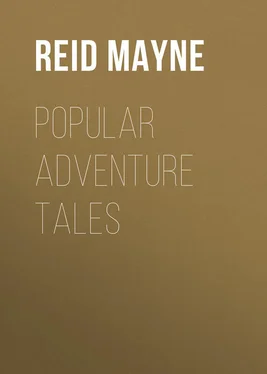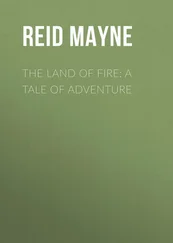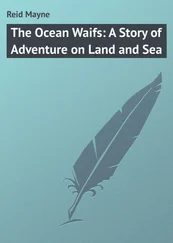Mayne Reid - Popular Adventure Tales
Здесь есть возможность читать онлайн «Mayne Reid - Popular Adventure Tales» — ознакомительный отрывок электронной книги совершенно бесплатно, а после прочтения отрывка купить полную версию. В некоторых случаях можно слушать аудио, скачать через торрент в формате fb2 и присутствует краткое содержание. Жанр: literature_19, foreign_antique, foreign_prose, foreign_children, на английском языке. Описание произведения, (предисловие) а так же отзывы посетителей доступны на портале библиотеки ЛибКат.
- Название:Popular Adventure Tales
- Автор:
- Жанр:
- Год:неизвестен
- ISBN:нет данных
- Рейтинг книги:3 / 5. Голосов: 1
-
Избранное:Добавить в избранное
- Отзывы:
-
Ваша оценка:
- 60
- 1
- 2
- 3
- 4
- 5
Popular Adventure Tales: краткое содержание, описание и аннотация
Предлагаем к чтению аннотацию, описание, краткое содержание или предисловие (зависит от того, что написал сам автор книги «Popular Adventure Tales»). Если вы не нашли необходимую информацию о книге — напишите в комментариях, мы постараемся отыскать её.
Popular Adventure Tales — читать онлайн ознакомительный отрывок
Ниже представлен текст книги, разбитый по страницам. Система сохранения места последней прочитанной страницы, позволяет с удобством читать онлайн бесплатно книгу «Popular Adventure Tales», без необходимости каждый раз заново искать на чём Вы остановились. Поставьте закладку, и сможете в любой момент перейти на страницу, на которой закончили чтение.
Интервал:
Закладка:
Norman soon kindled his torch, which now cast its red glare over the surface of the river, extending its fiery radii even to the banks on both sides of the stream. The trees that overhung the water seemed tinged with vermilion, and the rippling wave sparkled like liquid gold. The light only extended over a semicircle. From the manner in which the torch was placed, its light did not fall upon the other half of the circle, and this, by contrast, appeared even darker than it would otherwise have done.
The advantage of the plan which Norman had adopted was at once apparent to all. Ahead of the canoe the whole river was plainly seen, for a distance of several hundred yards. No object larger than a cork could have floated on its surface, without being visible to those in the vessel – much less the great white body of a trumpeter swan. Astern of the canoe, on the other hand, all was pitchy darkness, and any one looking at the vessel from a position ahead could have seen nothing but the bright torch and the black uniform surface behind it.
As I have already stated, the convex side of the bark was towards the blaze, and the pan containing the torch being placed close into the screen, none of the light could possibly fall upon the forms of those within the canoe. They were therefore invisible to any creature from the front, while they themselves could see everything before them.
Two questions yet remained unanswered. First – would our hunters find any swans on the river? Second – if they should, would these birds allow themselves to be approached near enough to be shot at? The first question Norman, of course, could not answer. That was a matter beyond his knowledge or control. The swans might or might not appear, but it was to be hoped they would. It was likely enough. Many had been seen on the preceding day, and why not then? To the second question, the young Canadian gave a definite reply.
He assured his cousins that, if met with, the birds would be easily approached in this manner; he had often hunted them so. They would either keep their place, and remain until the light came very near them, or they would move towards it (as he had many times known them to do), attracted by curiosity and the novelty of the spectacle. He had hunted deer in the same manner; he had shot, he said, hundreds of these animals upon the banks of rivers, where they had come down to the water to drink, and stood gazing at the light.
His cousins could well credit his statements. They themselves had hunted deer by torchlight in the woods of Louisiana, where it is termed “fire-hunting.” They had killed several in this way. The creatures as if held by some fascination, would stand with head erect looking at the torch carried by one of the party, while the other took sight between their glancing eyes and fired the deadly bullet. Remembering this, they could easily believe that the swans might act in a similar manner.
It was not long until they were convinced of it by actual experience. As the canoe rounded a bend in the river, three large white objects appeared in the “reach” before them. A single glance satisfied all that they were swans, though in the deceptive glare of the torch, they appeared even larger than swans. Their long upright necks, however, convinced the party they could be nothing else, and the canoe was headed directly for them.
As our hunters approached, one of the birds was heard to utter his strange trumpet note, and this he repeated at intervals as they drew nearer.
“I have heard that they sing before death,” muttered François to Basil, who sat nearest him. “If so, I hope that's the song itself;” and François laughed quietly at the joke he had perpetrated.
Basil also laughed; and Lucien, who had overheard the remark, could not refrain himself from joining in the laughter.
“I fear not,” rejoined Basil; “there is hardly enough music in the note to call it a song. They may live to 'blow their own trumpet' a long while yet.”
This remark called forth a fresh chorus of laughter, in which all took part; but it was a very silent kind of laughter, that could not have been heard ten yards off: it might have been termed “laughing in a whisper.”
It soon ended, however, as matters now became serious: they were already within less than two hundred yards of the game, and the greatest caution had to be observed. The gunners had arranged the order of fire: Basil was to shoot first, taking steady aim with his rifle at any one of the birds; while François should fire as soon as he heard the report of his brother's gun, taking the remaining swans upon the wing, with one or both barrels, as he best might.
At length Basil deemed himself near enough, and, levelling his piece, fired. The bird threw out its wings, and flattened down upon the water, almost without a struggle. The other two were rising into the air, when “crack! crack!” went the two barrels of François' piece, and one of the swans fell back with a broken wing, and fluttered over the surface of the stream. Basil's had been shot dead, and was taken up easily; but the wounded bird was only captured after a long chase with the canoe; and when overtaken, it struck so fiercely with its remaining wing, that one of the blows inflicted a painful wound on the wrist of François. Both, however, were at length got safely aboard, and proved to be a male and female of the largest dimensions.
CHAPTER V
“CAST AWAY”
Of course, the reports of the guns must have frightened any other swans that were near. It was not likely they would find any more before going some distance farther down the river; so, having stowed away in a safe place the two already killed, the hunters paddled rapidly onward.
They had hardly gone half-a-mile farther, when another flock of swans was discovered. These were approached in a similar way, and no less than three were obtained – François making a remarkable shot, and killing with both barrels. A little farther down, one of the “hoopers” was killed; and still farther on, another trumpeter; making in all no less than seven swans that lay dead in the bottom of the canoe!
These seven great birds almost filled the little craft to the gunwales, and you would think that our “torch-hunters” ought to have been content with such a spoil; but the hunter is hard to satisfy with game, and but too often inclined to “spill much more blood” than is necessary to his wants. Our voyageurs, instead of desisting, again set the canoe in motion, and continued the hunt.
A short distance below the place where they had shot the last swan, as they were rounding a bend in the river, a loud rushing sounded in their ears, similar to that produced by a cascade or waterfall. On first hearing it, they were startled and somewhat alarmed. It might be a “fall,” thought they. Norman could not tell: he had never travelled this route; he did not know whether there were falls in the Red River or not, but he believed not. In his voyage to the South, he had travelled by another route; that was, up the Winnipeg River, and through Rainy Lake and the Lake of the Woods to Lake Superior. This is the usual and well-known track followed by the employés of the Hudson's Bay Company; and Norman had travelled it.
In this uncertainty the canoe was brought to a stop, and our voyageurs remained listening. The noise made by the water was not very distant, and sounded like the roaring of “rapids,” or the rush of a “fall.” It was evidently one or the other; but, after listening to it for a considerable time, all came to the conclusion that the sound did not proceed from the Red River itself, but from some stream that emptied into it upon the right. With this belief they again put the canoe in motion, and glided slowly and cautiously onward.
Читать дальшеИнтервал:
Закладка:
Похожие книги на «Popular Adventure Tales»
Представляем Вашему вниманию похожие книги на «Popular Adventure Tales» списком для выбора. Мы отобрали схожую по названию и смыслу литературу в надежде предоставить читателям больше вариантов отыскать новые, интересные, ещё непрочитанные произведения.
Обсуждение, отзывы о книге «Popular Adventure Tales» и просто собственные мнения читателей. Оставьте ваши комментарии, напишите, что Вы думаете о произведении, его смысле или главных героях. Укажите что конкретно понравилось, а что нет, и почему Вы так считаете.












